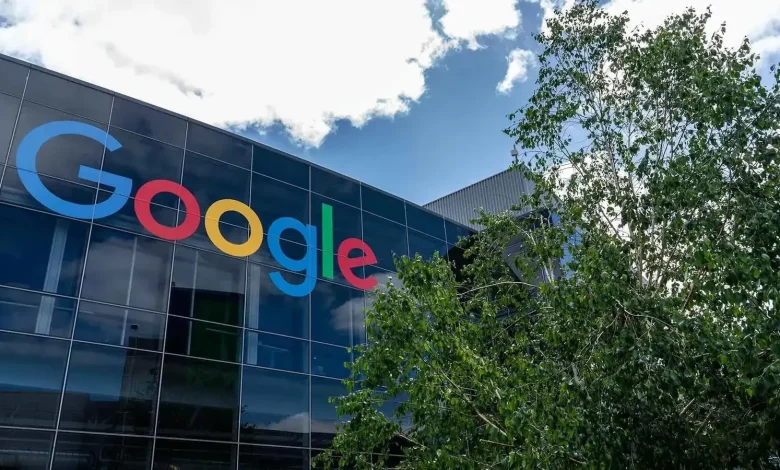How Google Develops Emotionally Intelligent Leaders In The AI Era

Google’s Chief Learning Officer Brian Glaser believes artificial intelligence and emotional intelligence will rise together.
When a senior leader joins Google, it’s a high-stakes moment. These are hard-won hires that they’ve courted for months, and their first weeks can determine whether they thrive or flounder. And for Google’s onboarding team, those early days are also a test of how well they can support these new executives.
“Until recently, the team spent many hours curating decks and documents,” said Dr. Brian Glaser, Google’s Chief Learning Officer. “Now, NotebookLM, fueled by Google’s LLM Gemini, assembles personalized onboarding guides in a matter of minutes. It’s complete with summaries, key resources, and even a podcast the leader can listen to on the go.” This frees up the onboarding team to spend more time building relationships and coaching new leaders in ways that provide personalized and specialized support to help the leaders quickly get to know the work, culture, and their leadership teams so they can start contributing right away.
This one small example captures a larger truth at Google: Artificial intelligence isn’t replacing human connection. Rather, AI is creating more space for human connection—and a greater need to master the skills of emotional intelligence that sustain it.
Dr. Brian Glaser, Chief Learning Officer at Google
Google’s School for Leaders Develops “Durable Skills” for the AI Era
Leading at Google means leading at one of the largest and most complex organizations on the planet. With seven products reaching over two billion monthly users—from Search and YouTube to Maps and Gmail—the ripple effects of leadership decisions extend to nearly every corner of modern life.
For Glaser and his team, the scale and intensity of these challenges are both exhilarating and humbling. “AI is the biggest technological change in our lifetime, with some external reports showing that 60% of jobs are set to fundamentally change by 2030. As a result, it requires us to rethink what human skills mean for Googlers (Google’s term for employees).” Glaser leans on his team at The Google School for Leaders, which he founded, to identify new leadership practices—a mission that has become all the more crucial in equipping Google’s leaders for the AI era.
The School aims to support leaders at three different levels across Google, ensuring relevance and role modeling at every level: managers of individual contributors, managers of managers, and senior leaders. At each level, learning is supported by research-backed content delivered in the flow of work, unique-to-Google learning experiences, peer communities, and access to both human and AI-enabled coaching. This helps make learning stick.
One of The Google School for Leaders’ newest programs, the Manager Development Series, despite being opt-in, reached an overwhelming majority of Google managers. It includes a core curriculum of skills like managing high-performing teams and growing your talent. It also includes an extensive set of electives, blending expertise from internal Google leaders with expertise from external leaders like Harvard professor Frances Frei and Olympic gold medalist Abby Wambach. The curriculum is evolving. The team is building new content, like how managers can effectively lead teams in a world where their reports are increasingly integrating AI into their own workflows.
“We want Google to be the best school anywhere,” Glaser says. “A place where people come and stay because they can learn about leadership, business, and life in ways they can’t anywhere else.”
EQ + AI = Business Impact
It’s fitting that Glaser’s mission as CLO at Google is to prepare leaders who can weave together technical mastery and human skills. “AI can help us with many things, but these durable, human skills will continue to be at the center of how we work and lead.”
Glaser defines durable skills as capabilities that will endure even as our ways of working evolve. These skills include creativity, empathy, agility, and judgment, and these traits form the foundation of their internal learning, which is designed to use AI not as a substitute for human ability but as an enhancer.
“We have teams currently exploring how AI tools can surface discussion prompts that will help with each of these durable human skills,” Glaser explained. For example, some teams are exploring how prompts could be used to simulate feedback scenarios before having a difficult conversation. Others are experimenting with ways AI can provide real-time insight into collaboration patterns, helping leaders recognize when their teams are over-extended or misaligned.
Why a Mindset of “Continuous Reinvention” Is the Foundation for Self-Awareness and Business Impact
“Organizations can’t reinvent faster than their people,” Glaser said. “If I don’t change myself, I can’t possibly change my team or my business.”
He pointed to examples like Nintendo, which started as a playing-card company in the 1880s, and YouTube, which began as a failed dating site. Both found their success through reinvention. “An organization’s ability to transform is fundamentally tethered to its people’s capacity to reinvent themselves, their teams, and the very nature of their work,” Glaser explained. And this process of self-reinvention demands curiosity, humility, and emotional intelligence.
Glaser believes that this mindset of reinvention will define the next generation of leaders. It includes skills like:
- the courage to experiment, fail, and learn – fast!
- setting ego aside and being comfortable with the discomfort of not knowing all the answers
- looking beyond the boundaries of one’s business sector or industry to generate new, creative ideas
“We have an opportunity to author new ways of working that bring out the best in people and organizations,” Glaser said. “And there’s no playbook for it yet. That’s what makes this era exciting.”
Where the “Artificial” Meets the “Emotional”
Glaser believes artificial intelligence and emotional intelligence will rise together. “Our job is to make sure leaders have the empathy, courage, and curiosity to use AI boldly and responsibly.”
The future of leadership won’t belong to those who resist AI. Nor to those who blindly follow it. The future of leadership will belong to those who can harness this new technology while staying deeply human.
Kevin Kruse is the Founder + CEO of LEADx, an emotional intelligence training company. Kevin is also a New York Times bestselling author. His latest book is Emotional Intelligence: 52 Strategies to Build Strong Relationships, Increase Resilience, and Achieve Your Goals.





